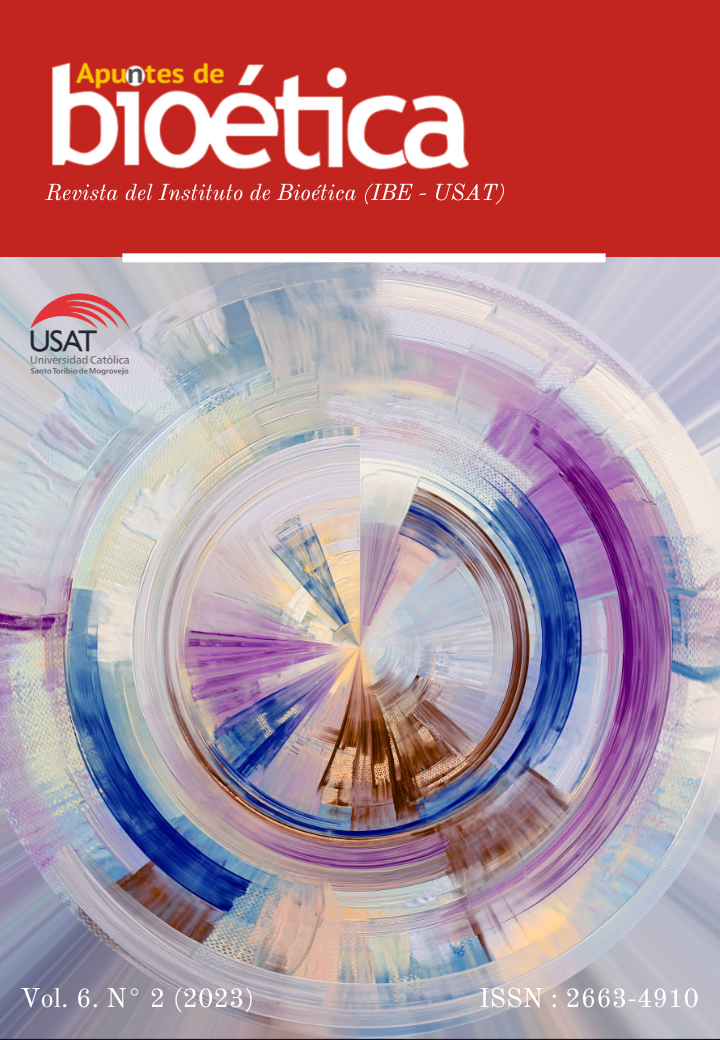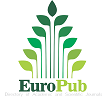Nature and human person
critical bases of the transhumanist claim
Abstract
It is necessary to defend the integral development of the human person, regardless of how much progress there is in biomedical technologies. To do this, it is necessary to understand what the human person is and how is its nature; only then will we know how to treat the person. The person, as the philosophical current of personalism has highlighted, is characterized by his subsistence and relationship, this implies his ability to be by himself and to open himself to others through love. Being for oneself means that one is unique, responsible, free, with a freedom that is not only the ability to do things but, above all, to choose, to self-determine from oneself towards the goal that perfects oneself as a person. Relational being implies the ability to give oneself in love and, in this way, transcend oneself. All of this confers on the person a special dignity or infinite value, highlighted above all by Christianity. Human nature consists of a substantial unity of body and soul, so that the body is vivified by the soul, being an expression of it. This human nature is intended to be overcome through technology by transhumanism, a movement that considers this claim as a moral duty. Behind its apparent goodness lies a serious danger of attacking the person in these dimensions that we have pointed out. The Vatican has called on everyone to work for an ethics that controls the action of Artificial Intelligence so that man does not submit to the technique, but rather controls it, a call that has had many responses from religious, political, academic and business entities.
Downloads
References
Amengual, G. La persona humana: el debate sobre su concepto. Madrid: Síntesis, 2015.
Bostrom, N. (2003, 26 de junio). Intensive Seminar on Transhumanism. Yale University. En E. Postigo, “Transumanesimo e postumano: principi teorici e implicazioni bioetiche”, Medicina e Morale. Rivista internazionale di bioetica, 2(2009), 271-289.
Bostrom, N. (2009). Intensive seminar on transhumanism, Yale University, 26 June 2003. En E. Postigo, «Transumanesimo e postumano: principi teorici e implicazioni bioetiche», Medicina e Morale. Rivista internazionale di bioetica, 2, 271-289.
Burgos, J. M. (2003). Antropologia: una guía para la existencia. Madrid: Editorial Palabra.
Burgos, J. M. (2012). Introducción al personalismo. Madrid: Editorial Palabra.
Cafarra, C. (1987). La sexualidad humana. Madrid: Ediciones Encuentro.
Catecismo de la Iglesia Católica. (2005). Compendio. Madrid, Asociación de Editores del Catecismo.
de Aquino, S. T. (1964). Suma Teológica. Madrid: Biblioteca De Autores Cristianos.
Dignitas Personae: Sobre algunas cuestiones de bioética. (2008, Setiembre 8). Congregación para la Doctrina de la Fe.
Donum Vitae: Sobre el respeto de la vida humana naciente y la dignidad de la procreación (2005). Congregación para la Doctrina de la Fe. Madrid: Ediciones Palabra.
Ferrer, U. (2002) ¿Qué significa ser persona? Madrid: Editorial Palabra.
Fides et Ratio: Sobre las relaciones entre la fe y la razón. (1998, November 2). Juan Pablo II.
García, J. (2003). Antropología Filosófica: una introducción a la filosofía del hombre. Pamplona: Editorial EUNSA.
Gaudium et Spes. (1991). Documentos del Vaticano II. España: Biblioteca de Autores Cristianos.
Holy See Press Office. (2020). Address prepared by Pope Francis read by H.E. Msgr. Vincenzo Paglia, President of the Pontifical Academy for Life on the occasion of the meeting with the Participants in the Plenary assembly. https://press.vatican.va/content/salastampa/it/bollettino/pubblico/2020/02/28/0134/00291.html
Hoyos, I. M. (1987). El concepto jurídico de persona. Tesis doctoral. Universidad de Navarra (España).
Laudate Deum: Alaben a Dios por todas sus criaturas. (2023, 4 de octubre). Francisco.
Melendo, T. (2001). Dimensiones de la Persona. Madrid, Editorial Palabra.
Muñiz, M. (2022, 30 de noviembre). La algor-ética (o los principios éticos de la inteligencia artificial). https://ethic.es/2022/11/la-algor-etica-o-los-principios-eticos-de-la-inteligencia-artificial/
Pegoraro, R., & Curzel, E. (2023). Convocatoria de Roma por la Ética de la IA: el nacimiento de un movimiento. Medicina ética, 34(2). https://doi.org/10.36105/mye.2023v34n2.01
Polaino-Lorente, A. (2003). Fundamentos de psicología de la personalidad. España Ediciones Rialp.
Raviart, M. (2023). La inteligencia artificial, tema de la Jornada Mundial de la Paz 2024. Vatican News. https://www.vaticannews.va/es/vaticano/news/2023-08/inteligencia-artificial-tema-mensaje-papa-jornada-paz-2024.html
RenAIssance Foundation. (2022). Text of the Rome Call for AI Ethics. http://www.romecall.org/
Sanguineti, A. M. (2022). La imagen trinitaria de Dios en el amor donal (Ejemplar dedicado a: CONGRESO MUNDIAL SOBRE LA FILOSOFÍA DE POLO, v. III). Miscelánea poliana: Serie Filosofía, 73, 2022, 60-81.
Sgreccia, E. (2009). Manual de Bioética. Madrid: Biblioteca de autores cristianos.
Spaeman, R. (1989). Lo natural y lo racional. Madrid: RIALP.
Spaeman, R. (2000). Personas. Acerca de la distinción entre “ALGO” Y “ALGUIEN”. Navarra: Editorial EUNSA.
Valera, L. (2021). Tres tesis sobre el transhumanismo. Persona y Derecho, 84. 119-132. doi: 10.15581/011.84.006
Valverde, C. (2005). Antropología filosófica. Valencia: Editorial Edicep.
Vaticano: “Humanizar la técnica y no tecnologizar lo humano”. (2020, 25 de febrero). Vatican News. https://www.vaticannews.va/es/vaticano/news/2020-02/vaticano-inteligencia-artificial-humanizar-la-tecnica-no-tecnica.html
Wojtyla, K. (2005). El hombre y su destino. Madrid: Ediciones Palabra.
Wojtyla, K. (2011). Persona y acción. Madrid: Ediciones Palabra.
Yepes, R. (1996a). Un Ideal de la excelencia humana. Pamplona: Ediciones Universidad de Navarra.
Yepes, R. (1996b). Antropología filosófica, Pamplona, Ediciones Universidad de Navarra,
Zubiri, X. (1985). El Hombre y Dios. Barcelona: Alianza Editorial.
Copyright (c) 2023 Kelly Rojas Valdez, Gabriela Keiko Nakama Hokamura (Autor/a)

This work is licensed under a Creative Commons Attribution 4.0 International License.
The authors retain copyright.
This work is under international license Creative Commons Attribution 4.0.
The articles published by the scientific journal "Notes on Bioethics" of the Universidad Catolica Santo Toribio de Mogrovejo, Chiclayo Peru, can be shared through the international public license Creative Commons Attribution CC BY 4.0
























 LIBRARY USAT
LIBRARY USAT